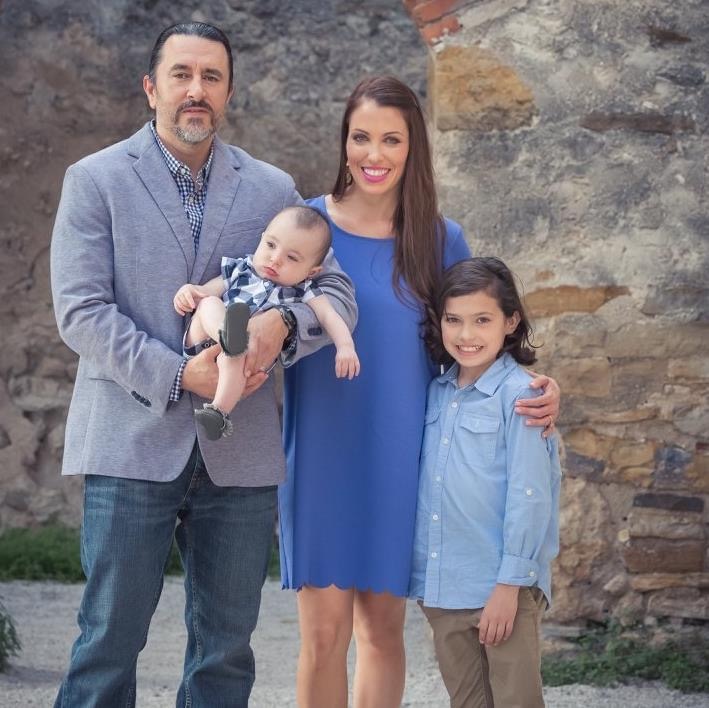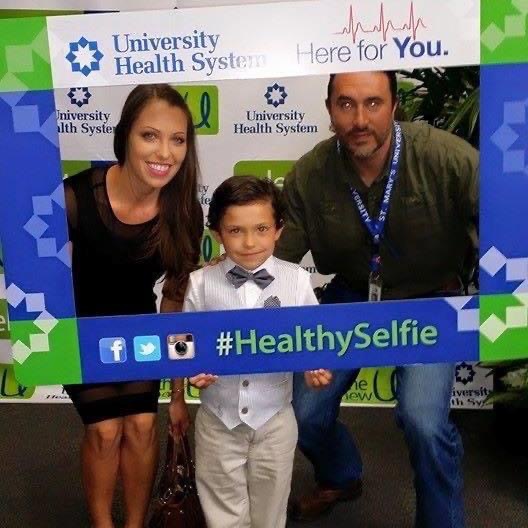Meet The Researcher: Q&A with Allison Crawford in our Nursing Science Ph.D. program

1) Your name, program, mentor name.
 Allison Crawford, RN, PhD Candidate in our Ph.D. in Nursing Science program, UT Health San Antonio School of Nursing, Dr. Lisa Cleveland, RN, PhD, PNP-BC, IBCL, APRN, FAAN.
Allison Crawford, RN, PhD Candidate in our Ph.D. in Nursing Science program, UT Health San Antonio School of Nursing, Dr. Lisa Cleveland, RN, PhD, PNP-BC, IBCL, APRN, FAAN.
2) Tell me the story of when you realized you were passionate about science.

My life experiences driving me to go into health care, policy and research has been a journey which started when I became a mother in 2008. Motherhood was just as much a magical experience as it was terrifying for me. I was inspired enough to want to assist women in their journeys to motherhood but also being mindful that mothering comes with a unique subset of challenges especially with individuals at the intersections of gender, class and race. In 2009, I started prerequisites for nursing school with hopes of becoming an obstetrical nurse. Following my graduation with my bachelor of science in nursing and licensure as a registered nurse, I went to work as an obstetrical nurse at University Health System (UHS), the county hospital in Bexar County.
My interest in helping underrepresented communities began early in my career after recognizing health disparities in the patient populations I served. During my time at UHS, I helped implement an antepartum support program, funded by the March of Dimes, to assist high-risk, pregnant women in the hospital setting. In addition, I was the nurse liaison and childbirth educator at UHS for the Mommies Program, a unique program which serves the needs of childbearing women and families with Substance-Use Disorders (SUDs). These early professional interactions and my vision for improved health care motivated me advance my education and pursue a career as a Nurse Scientist and Nurse Educator.
3) Please tell me about yourself, why did you pick UT Health San Antonio, and your program.

I was influenced by incredible mentors who motivated me to continue my education while I was a bedside nurse at UHS. Several of my mentors were already affiliated with the graduate school at UT Health San Antonio School of Nursing. The interpersonal relationships I had established during my nursing career along with UT Health San Antonio’s mission to serve the greater community were the deciding factors leading me to choose UT Health’s School of Nursing Ph.D. program.
4) Tell me about your research. Why are you passionate about your research topic? How did you first become interested in it?

After being accepted to the BSN to PhD Fast-Track Program at UT Health San Antonio in 2016, I was fortunate to serve as a research assistant with Dr. Lisa Cleveland, PhD, PNP-BC, IBCLC, FAANon several funded research studies which focused on the impact of SUDs on young child-bearing families and early childhood development. During my academic trajectory, I gained valuable experience working on several large studies as a graduate research assistant. In addition, I actively worked to build valuable partnerships through my collaborations with a variety of nonprofit organizations such as the American Civil Liberties of Texas, The Texas Jail Project, and the Texas Criminal Justice Coalition. My role in this work has been to advocate for individuals impacted by incarceration. In 2019, I participated in researching and writing testimony on behalf of Texas HB 1651 to improve perinatal care for inmates in Texas county jails this past 86th legislative session.
My research is focused on describing the systemic racial inequities in Latina mothering populations impacted by incarceration. Mass incarceration is a modern phenomenon which disproportionately impacts women at the intersections of gender, class and race. The intersecting political, economic, and social components of mass incarceration have a direct impact on the health and wellbeing of women of color, particularly Latina women during their reproductive years. Current data has adequately identified Latinas to be one of the highest minority groups impacted by incarceration, however, there is a limited amount of data describing their unique experiences. We know for effective outcomes and interventions, there must be adequate culturally informed data and education. I have been driven to advance my program of science after learning the magnitude of health inequities in childbearing populations impacted by incarceration. My passion to reduce maternal and child health disparities by building a robust program of research is my motivation to continue my education.
5) What do you want the public to know about your research? Why is your topic important?

The populations impacted most by the institutions of incarceration are childbearing communities, predominately women of color. Women’s imprisonment has gone up over 800% in the last thirty years and has exceeded the rate of men becoming incarcerated by over 120%. Most women impacted by incarceration are mothers to young children and are the primary caregivers in the home. The offenses associated with female incarceration are centered around systemic inequities associated with poverty. The structure of jails, their processes, policies and bond amounts were historically set for the needs of working-class men, not mothers.
There is limited language in the policies and procedures within the institutions of incarceration recognizing the unique health care needs of mothers. In addition, there is limited legislation mandating for better protections for the health of system-impacted women, children and families. This disparity disproportionately impacts Latina mothering populations and their children in Central Texas and the nature of this problem is heightened due to limited data.
The health inequities in this population is a multifaceted problem which requires a multifaceted solution. Health care providers who work with this population needs to form interdisciplinary partnerships across systems that span the local, state and federal levels to be effective. In addition, health care providers in this arena need to use their voices across legislative processes to assist with better protections for communities impacted by the institutions of incarceration.
6) Have you won any awards or are you apart of any organizations/student clubs that you are passionate about?
 My advocacy has been recognized by my colleagues and mentors which has provided me numerous scholarship opportunities throughout the trajectory of my graduate nursing education. My most recent accomplishments have been awarded the Graduate Nursing Student Social Justice Scholar Award and Sigma Theta Tau Nurse Leader, Alpha Delta at Large award for my nursing leadership.
My advocacy has been recognized by my colleagues and mentors which has provided me numerous scholarship opportunities throughout the trajectory of my graduate nursing education. My most recent accomplishments have been awarded the Graduate Nursing Student Social Justice Scholar Award and Sigma Theta Tau Nurse Leader, Alpha Delta at Large award for my nursing leadership.
7) What do you like most about being at UT Health San Antonio or your program?
I have enjoyed my experiences at UT Health San Antonio by having opportunities to serve the greater community in developing effective research and science to advance health in underrepresented populations.
8) What do you like to do outside of graduate school?
I enjoy collaborating across different nonprofits and systems to help change policy at the grass roots levels. I volunteer outside of school helping state representatives and nonprofit organizations inform legislation of the health disparities plaguing communities impacted by incarceration. My activities include writing and disseminating research surrounding reproductive health care, contacting judges and sheriffs, organizing health care providers and connecting those in the arena of incarceration and reproductive health with each other across organizations.
9) What’s next?
I understand a multilevel approach will be far more effective at moving the needle towards health equity, and so I have been engaging in training in a range of modalities including policy reform initiatives, civil rights advocacy and community-based science focused on addressing social determinants of health and reducing health disparities.
I would like to continue to change policy at the local, state and federal levels to alleviate the health inequities within the institutions of incarceration. In addition, I would enjoy growing my program of science to develop meaningful interventions and programs to help with health disparities associated with the political, social and economic components of mass incarceration and reproductive health. I know that this issue requires strong leadership and advocacy so I am currently looking into fellowship programs to continue my training and hope to eventually transition into a tenured-track faculty position.
